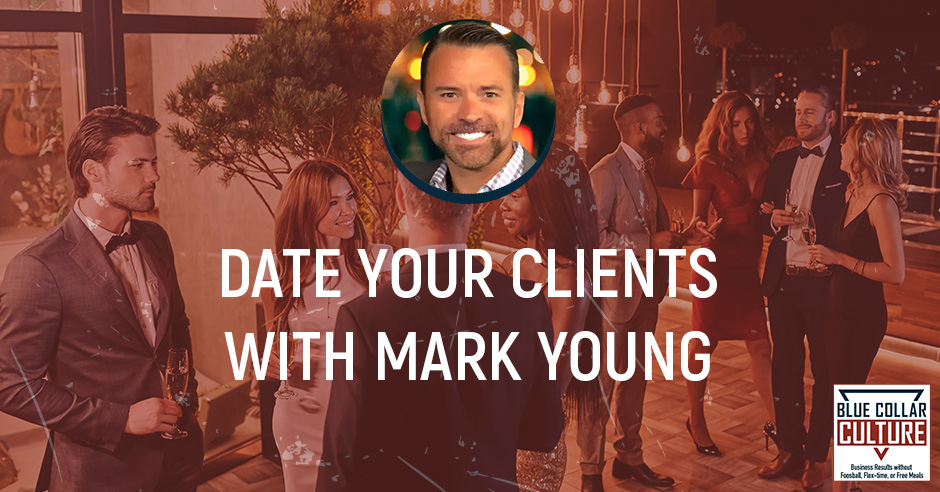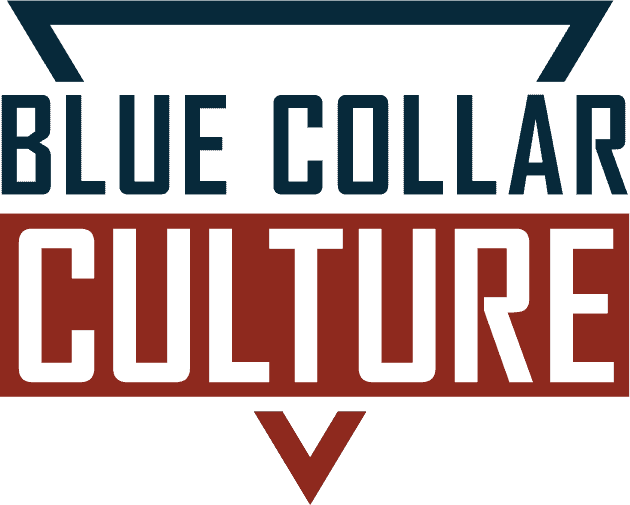
We all have relationships that we get into that require communication, setting expectations, and commitment and the employee-employer relationship is no different. Today’s guest has identified parallels and creatively conceptualized a metaphor between dating and building client relationships. Mark Young is the CEO of Ryze Agency and author of Date Your Clients: Building Professional Equity from Life’s Worst Personal Strikeouts. In this episode, he chats with host Ryan Englin about the essence of every human relationship and how understanding this can help your business. Mark shares that relationships, regardless of their context, follow predictable patterns. Using the concept of dating, he outlines practical strategies for engaging and communicating with clients to foster healthy and positive relationships. Listen in on their chat to learn all about it!
—
Date Your Clients With Mark Young
If you’ve ever heard me speak, you’ve heard me talk about how recruiting and hiring new employees is much like the dating process. We all have relationships that we get into. They’re relationships that require communication, expectation setting, and commitment. The employee-employer relationship is no different.
Our guest is an expert at translating this idea of dating to the business world. He is a brand new author. He wrote a book called Date Your Clients. I love the premise that goes into the idea that we have to make a commitment to our clients and to our people, set expectations, and communicate with them properly as we do when we’re dating someone new. I’d love to introduce the guest to the show, Mark Young.
—
Mark, welcome to the show.
How are you?
Mark’s got a new book out. I love the metaphor here that we’re going to dive into. Even though we’re going to talk a lot about clients and how to take care of your clients and your customers, there are so many parallels when it comes to recruiting and your employees. I’m excited about that. This is the same question I ask everybody right at the beginning. We love changing mindset. We love breaking down norms. What is the biggest myth about your industry?
Professionally, I own and operate an advertising and marketing agency. With that being the industry we’re talking about, the greatest myth is that anybody who does marketing is an expert at all different forms of marketing. I talk about this. Someone’s like, “I have a nephew who does that,” or, “I have someone I know. They’re good with computers. They should be able to build you an eCommerce site.” I tell people, “If my foot hurts, I wouldn’t go to an oncologist, except both of them are doctors.” At the same time, the same is true in the marketing advertising industry. That is because when someone works in the industry, it doesn’t mean that they’re an expert. There so many different verticals and so many different ways to skin that cat, so to say.
I had somebody. He was a young man that I was mentoring. He was like, “I want to get into this marketing world professionally. I need to know what to do.” I said, “Okay.” He goes, “I’m really good at it. I know my stuff, but no one will give me a chance.” I’m like, “It depends. What do you want to get into? Are you trying to get into SEO and organic-type marketing? Are you trying to get into paid advertising and social media?” He’s like, “SEO and paid ads are the same thing.” I went, “They’re the exact opposite of each other.” He laughed. He’s like, “I don’t have as much experience as I thought.”
Isn’t that the case, though, with so many people? In my past life before I was helping companies with recruiting, I had a marketing agency as well. I always loved it when we would deliver a new website design and would send it to the client. They’d be like, “I talked to my brother-in-law and he thinks it’s awful. He thinks you need to change this and that.” I remember thinking, “If my doctor told me I had a brain tumor, I don’t know that I’d bring those films home and be like, “What do you think? Should we operate or not?”
I’ll caveat one thing to that. That’s what I always tell my clients. I mention this in Date Your Clients. That is, “Quit asking the people closest to you about their opinions. All of them are going to tell you something positive because why would they want to set themselves up as being the bad guy? These are people who want to remain in your life. Why would they call your baby ugly? They’re not going to do it. Hire a professional who tells the truth. That’s what you need to do.”
From the standpoint of, “My brother-in-law thinks this needs changed and that needs changed,” the one thing I always highlight for my clients is, “Let’s take that under advisement because your brother is a potential consumer.” From the eyes of a consumer, let’s figure out if your brother is the demographic that we’re trying to sell to. If your brother is in demo, that may be valid input. If your brother is 60 years old, and we’re trying to sell a product to an eighteen-year-old female, I probably don’t care about his opinion.
There is so much to that. You wrote this book called Date Your Clients. I love the metaphor there of dating. Give us the premise of the book and maybe why you wrote it.

The story behind this is embarrassing as it sounds. It’s not embarrassing for me. I was talking to a client who wasn’t getting it. As I was trying to explain to her some of the disconnects that were happening because she was, metaphorically, throwing out the baby with the bath water, I’m like, “You’re missing the point. You’re driving traffic to a website that’s terrible. You’re blaming the traffic, and it’s not the traffic’s fault. The traffic got there.”
The issue is that the site itself is terrible. I’m like, “It’s no different than if I were to get you 100 first dates and you showed up looking ugly. It doesn’t matter how many dates I get. You showed up looking ugly. It doesn’t matter what kind of personality you have. You already turned people off. It’s like you’re dating profile. You would never put ugly pictures of yourself on a dating profile. You always put the best ones. It’s the same with your website. It’s another point of intrigue.” The goal is to simply continue the relationship.
I said, “The goal of a first date is a second date. The goal of the first date is not marriage. The goal of the first date is a second date. The goal of the second date is a third date until you’ve accumulated enough data to decide if this is going somewhere.” The reality is, as a marketer, I can get you as many first dates as you want, but you’ve got to deliver once that happens. I start metaphorically outlining this to her and she was not receptive to it. I said, “How about if I put this in an email for you? In that way, you get a chance to let it marinate.” I started writing this email to her and it turned into a book, truthfully. That’s exactly how that happened. I started an email and wrote a book.
I love it. That’s one of the best ways because it’s authentic. It’s real. You were looking to solve a problem. It’s fantastic. When we talk to clients, they’re like, “We can’t find any good people. There’s no one out there that wants to work.” We pull up their online profile and they look to the equivalent of being an ax murderer. I’m like, “this is why people don’t want to come work for you.” When your Yelp reviews are a two-star, guess what employees are thinking? The customers don’t like them. There’s no way the employees like being there.
True statement.
Often, as employers, we see this as business owners. We dismiss some of the bad stuff. We’re like, “That was a crazy psycho client. Who cares?” It’s out there in the world. It’s part of your ax murderer-looking profile.
It’s that Glassdoor issue. The truth of the matter is to a certain extent, there is a certain element of people reading Glassdoor reviews. People post the negative, not positive. That’s one of those things. To employers, one of the things that I always mention is, “Have your current staff go write reviews for you.” It’s not that complicated. We can dismiss the bad ones, but are there any good ones? When we’re dealing in eCommerce, the same thing goes for your product. It’s okay to have an average of four stars because some people aren’t going to like it no matter what you do. The reality is we need to make sure that we’re trumpeting the ones that do.
If you have 5,005 star reviews, people are going to start to call BS after a while. They’re like, “There’s no way you’re making that many people happy.” It’s okay to have a couple bad ones.
We have that conversation all the time, too. There is no such thing as a perfect company that delivers perfect customer experience. Customers don’t want to know you’re perfect. They want to know that when a problem arises, they want to know how you’ll solve it. That’s what they want. When stuff happens, because it will happen, what are you doing to fix it?
There is no such thing as a perfect company that delivers a perfect customer experience. Customers don't wanna know you're perfect. They wanna know that when a problem arises, you'll solve it. Click To TweetThere is more value in you responding to a negative review in a positive light than there is in ignoring it and hoping it goes go away. Talk to me. Give us a couple of the principles that started in this email that turned into a book. They may be 1 or 2 things that our audience could start thinking about for their business and ways they could transform things. Let’s dig into a couple of them.
I tend to be somewhat of a sarcastic, snarky personality. It became evident in my writing that everything had a bit of a tongue-in-cheek nuance to it. Part of that is when you’re talking about dating your clients, even the title itself has a somewhat provocative nature to it. They read dating your clients and everybody immediately tilts their heads slightly and goes, “I thought we weren’t supposed to date our clients?” In that metaphor, one of the things I tell people is, “I’ve dated a lot. I’ve also had a lot of clients. The one thing that all of them had in common was they’ve all been human.”
The reality is that human interactions are human interactions. No matter how unemotional you want to consider yourself at work, you’re an emotional human being. You’re a person who’s created that way. We all get frustrated. We all get disappointed. We all have celebrations. We all want to be cheered on even when we say, “That stuff doesn’t matter to me.” An ‘atta boy’ goes a long way no matter how good you are. A certain amount of that pump and celebration is necessary.
Chapter by chapter, it walks through probably the unscrupulous details of how dating takes place. It makes every single comparison through the life cycle of a client relationship. There are chapters such as The First Fight, The First Date, and Meeting the Family. They all play into the same thing in recruiting and in all of this. It’s how do you manage relationships? I go back to a word all the time near every interaction I have, and that is expectations.
For most people, it boils down to a matter of making sure your expectations align. Talking about recruiting, an employee has an expectation of what an employer should do for them and what the employer should be for them. The employer is, for all intents and purposes, guessing. Those expectations are typically based on a past employer. You have no idea how that past employer treated the employee. That’s what that employee expects from you. Good or bad, that’s their expectation.
It’s like the ex-girlfriend. All of a sudden, you’re dating her. Her setup for what your relationship should look like is based off of her family or previous relationships. It’s based off of these types of things. You’re guessing. The reality is that most arguments in relationships or most employee dissatisfaction all comes up because someone expected something that didn’t happen. It has typically nothing to do with what happened. It’s usually what didn’t happen.

Many people talk. They go, “The only way to get people to work is to pay them more.” Everybody thinks they’re worth so much. You know what it is. I love how you put this together. They’re expecting you to treat them like their last employer. The only way they’re going to tolerate that in a new environment is if the bribe aka their paycheck is big enough for them to look the other way.
The other thing I would say is unless you treat the person so much better than they’re willing to. What I call it is this social engagement. There’s this marketplace, socially speaking. For instance, you get the pretty girl with the guy who’s got money. That stuff happens, too. He’s able to offer his finances in exchange for her beauty. Those things happen in that social exchange.
The same things happens in employers. I’m willing to work for less money if it’s a super fun environment and I’ve got a lot of friends that work there. For instance, I get to work in field where I’m passionate. If I’m an artist and you offer me a job where I have to create art every day, I’ll work for less money because I love what I do.
In your world, you’re dealing with a lot of blue collar work. That doesn’t necessarily provide the existential benefit that a lot of people are looking for. It’s a wage-type situation, but they still want additional perks. They still want to feel that value. They still want to have that personalized touch. You’re competing with the bar that was set for them.
We’re an advertising agency. How often my client thinks we should meet is 100% based on when their last agency met. We tell them, “We’re going to set you up on a meeting every two weeks.” They’re like, “In my last agency, we met weekly.” We’re like, “That’s fine. We’ll meet weekly if that’s what it takes, but I’m guessing the outcome until that happens.” They’re like, “I don’t like the way we do this.”
We use Microsoft Teams. We use it internally. We use it with clients. We use it with all of them. This one particular client uses Slack. His solution was, “Everyone we deal with uses Slack, so you guys need to use Slack when you’re communicating with me.” We’re like, “If that’s what it takes.” It’s the expectation of what they believe good service looks like.
How do you manage that? You already said it, and it was so great. It’s not what happened. It’s what was expected to happen that didn’t happen. That’s what causes the problems. As the company, how do you manage that?
The way to manage expectations is through clear communication, and that is 100% of it. If you come in as an employee and I tell you exactly what’s going to happen, what the expectations are, what the negatives are about working here, and what the exciting things are, all of that is set up in the beginning. There is no reason for an expectation to go south. All of that happens early enough in the courtship process, which in the employment world is the interview. We’re going to talk about the good and the bad.
The truth of the matter is with me, I tend to focus more on the negative during an interview than positive. A lot of intrinsic positives come with working in our industry because we get a lot of passionate people who love what we do and they want to be part of that. In addition to that, we’ve got to focus on the negative. We tell people like, “We’re disorganized. We have a very entrepreneurial client base. That means last minute things show up all the time because our clients don’t have their shit together, so to say. Things happen. Communication can get crazy.”
We say, “Does that sound okay to you? Does that frustrate you? Is that something you think you can work within? We change hats all the time. Is that a place that you can do?” A lot of times, I notice employers want to talk about all these positive things. They want to do all this stuff. That’s when they want to say, “This is the best place to work ever. We are the biggest whatever in America.” No one cares that you’re the biggest company in America. They want to know how it affects themselves.
At the end of the day, I’m my own favorite topic. We talk about this in marketing all the time. Quit talking about yourself. Talk about the customer. From an employment standpoint, it’s the same thing. Employers want to sit and have this conversation about themselves, what they offer, and what they do as a company. The reality is the employee is sitting here going, “How does this affect me? What do I get out of this?” I don’t mean financially.
Quit talking about yourself. Talk about the customer. Click To TweetWe do an annual golf outing for us, as an example. One of the things we talk about is we believe in work-life balance. We understand that people have lives outside of the office, which means we’re flexible about people being able to work from home if necessary. We close the office for two weeks around Christmas and New Year’s because we understand that being here in South Florida, nobody’s from South Florida. We all travel for the holidays.
No one who lives in South Florida has family in South Florida. Everybody is from somewhere else. Our entire office is planning on being out of town anyways. We shut the office down. Here’s the expectation. We are outlining what projects must be completed before we go on break. Everyone has to take their laptop home with them when they’re traveling over the holidays because it doesn’t mean that we are closed that our clients are as well. We’re outlining those types of expectations. What’s in it for you? You get to spend two weeks at home over Christmas and New Year. You can go spend it with your family up north. You can do whatever you want, but be available if I need a call.
Those types of people start thinking, “I get vacation time and I get time over the holidays? That’s cool.” They’re like, “You don’t count sick days? If you’re sick, you’re sick and can work from home?” We’re like, “Sure. That’s not a problem.” They’re then like, “I get these things?” It’s usually not a conversation about dollars. It’s usually a conversation about the people wanting to be part of a fun team. It’s common for us to have 3 or 4 people all come in and introduce themselves during interviews. I’m not the one who does most hiring, but our VP of ops will leave the room and let them chat with other employees. Talk to other people.
There are lots in there about expectation setting and communicating it. I don’t know why, but communication seems to be one of the hardest things for a lot of companies to figure out how to do effectively. The analogy into the metaphor is that’s what the whole dating process is about. That’s what you communicate during the dating process. When it comes to dating your clients, what does that look like? How do you set expectations with clients so that it works?
I want to say two things in there. The first thing is with the expectation side. Setting those expectations and communicating clearly is enormous on the front end. You’ll never get around it. This holds true even in the blue collar recruiting world. Most of our clients have come to us scorned. They’ve dealt with somebody in the past who has treated them badly. They may be someone who told them they were going to go take them from zero to hero in three months and all they had to do was pay this giant retainer. They’ve come to them with these expectations broken. They’re coming to that date that got out of a bad relationship.

They’re not willing to give us everything. They’re not willing to buy into the culture. They’re not willing to talk about all the things. They come to us and say, “What would you do with our brand? Tell us. What is it that you would do if you were king of the forest?” We spell out this giant scope of work and tell them, “These are all the things that are wrong,” which to them, inherently sounds like the other people they’ve talked to because they were negative, too.
They say, “Our budget is $3,000 a month.” I have to resist laughing. I’m like, “You’ve barely covered our phone call. Can we please talk a little bit deeper than $3,000 a month? In the marketing world, that’s nothing. We’re doing more than that in sales a day and that’s what you want to put to your marketing. That’s ridiculous.” What we end up having to do is get some very early wins.
The same holds true in dating and recruiting. You have to set up those expectations early and then prove that you are a person or a company that follows through on your promises. Most expectations have been defeated because somebody has made a promise that they haven’t kept. I’m like, “I promise that we’re going to do this,” and then I don’t. It’s the boyfriend who makes all of the, “You’re the love of my life,” but then is texting all the time to other people. He may be doing nothing wrong, but her expectation is different than that.
The same is true with employers. They’re like, “You’re going to be the greatest. You’re going to be amazing. You’re going to be the best hire we’ve made all year.” Suddenly, they’re just another cog in the machine, and that person feels deflated by it. On early wins with our clients in particular, what did we do? We tactically figure out, “For $3,000 a month, what is the one way we can make a super early win and prove to you we know what we’re doing?” We meet them where they are and then pull them forward.
We have a client that we started working with a few months ago, which is where the $3,000 a month comes from. That was their cap. I’m like, “That’s fantastic. Here’s my scope of work. Your whole place needs remodeled, and yet, you want to paint the living room. I’m trying to tell you there’s no point in painting this because we need to tear the walls down.” Eventually, it’s like, “That’s great.” I’m like, “Rather than painting the living room, even though the walls need to be torn down, let’s metaphorically do something completely different and show you what we’re capable of.”
We did some tactical work for them and blew up a $30,000 weekend in sales. All of a sudden, the client was like, “We’re listening. What is it you got?” A few months later, I’m on a telephone call with the client talking about a complete revamp of their entire program. We’re rebranding, repackaging, and rebuilding their website. There are full PR, SEO campaigns, and everything else. The client is like, “What else?” I’m like, “There we go.” It’s a trust issue.
You showed them you were different.
That trust is built on expectations. The expectation is that when I promise you something I deliver and I deliver once, you expect it the 2nd time and the 3rd time. The trust happens because when you say you will, you do.
Trust is built on expectations. The expectation is that when you promise them something and you deliver once, they expect it the second time and the third time, then the trust happens because when you say you will, you do. Click To TweetI love that. You keep your promises and don’t make promises you can’t keep. That’s the rule right there. That’s fantastic. You said that the dating your client metaphor goes through all of these different stages. What’s another area? We talked about expectations and communication. What’s another area that our audience could go, “I can start doing that,” whether it’s their clients or employees.
I get asked regularly, “What’s your favorite chapter?” I will say that my favorite chapter is a chapter called The First Fight. The first fight becomes a bigger problem than most people realize because nobody wants to talk about that. The truth of the matter is every employee is going to get frustrated. Every dating relationship is going to have a fight. Every client is going to disagree with a strategy. There’s always going to be differences.
My dad always used the phrase, “If we agreed on everything, one of us wouldn’t be necessary.” The reality is we need to learn how to embrace those differences and figure out how we communicate through them. Part of that I’ll say is an example. It’s that time of year that we’re doing employee evaluations around here. One of the things that interests me is so many employee evaluations are a list of all of the things that you should do better. Seldom do employee evaluations stop, congratulate, celebrate the wins, and talk about the good stuff.

When the stuff goes right, we expect it. When the stuff goes wrong, we feel like we need to throw a parade to make sure that everybody knows what they did wrong. We talked about online reviews. The happy customers expected a good experience. What happened? They got expectations. That’s it. The people who had a negative experience tell the world. They share their experiences. In the first fight, we talk through when things go wrong, what do we do?
There’s an incredible metaphor that I’d seen in a meme of all things. The meme was of a World War II plane that came back to base all shot up. The engineers at the base said, “Look at all these areas that got shot up. We need to start reinforcing our entire fleet in those areas because those are the areas that get shot up most often.” There was one man who stood up and said, “I’m going to say it’s the exact opposite. The planes got shot up in those areas but still made it home. I would postulate that the planes that didn’t make it back were shot up in the other areas, and because of that, we should reinforce the areas of these planes that didn’t get shot. That’s where the damage gets done.” I was like, “We need to double down on our positives and not focus so much on the negatives.”
When it comes to dealing with staff or dating, imagine the case that all we do is focus on the things that go wrong and don’t take the time to talk about the things that go well. Related to clients, let’s say that we send a website to a client. The client, what do they do? They immediately go through it and find everything about it that they wish they had differently. We get this giant bullet list of everything they want changed before we even get a chance to get on a phone call because we have to send them the art files in advance.
They want to take three days to go through it. We’re like, “Let us walk you through it please.” The immediate thing that happens. We get on the call and the client sent this list of fifteen things they want changed. The artist is disappointed. They’re like, “I did such a great job and you called my baby ugly.” We’re going through this battle.
We get on the telephone with them. Usually, it’ll be a web meeting because I hate phone calls when we go through this stuff. Usually, I will tell them, “We’re not starting with your email. We’re starting at the top of the page. At the top of the page, tell me. What do you like about this?” They’re like, “We loved that. That image is exactly what we were going for. The font’s a little small.” We’re like, “No problem. We’ll fix the font. What do you think of the overall branding?” Usually, when we talk through it, we find out we’re 95% in agreement. You didn’t send me a list of all the things you loved. You sent me a list of all the things you wanted different. The same holds true in fights.
My background was in clinical psychology. I’d be sitting with clients on a regular basis in a therapy session, as an example. I would always try to take them back to, “What is it that you love about each other? What brought you together to begin with? I get the problem you’re having right now, but is there enough equity that we can work through this? What’s going well?” When you start figuring out the things that are positives, that first fight and all subsequent fights start to seem less of a deal.
When my clients don’t like something, we’re like, “Let’s talk about all the wins you’ve had with us on your team.” All of a sudden, the one thing they didn’t like doesn’t seem like that big of a deal anymore. That’s a big deal when you’re talking with trying to discipline an employee. You’ve always heard the start with a good, end with a good type of situation. We’re like, “I want to thank you for your commitment. I know you meant well when you were doing this because I can see how you thought it through. I don’t like the action you took here. I want to hear about what led you there. I’m excited because I know that you are a person who’s going to fix it.” That type of communication goes a long way.
It’s interesting as you’re talking about the first fight. For those that are reading, one of the things that stood out to me was the first fight can’t be the first thing that happened because then, it’s a problem. You started with getting the little wins so that there’s a little bit of built up equity. When you do have the first fight, there’s enough positive that’s happened in the relationship that you’re both willing to work through it. Is that right?
Absolutely. When I talk about the first fight, I’m assuming that first fight is an existing relationship, not one that began.
There is a lot of great stuff in there. The thing that stood out for me was when you were talking about the critics. Everybody’s a critic. One of the things that I learned a long time ago is the difference between an amateur critic and a professional critic. The amateur critic can tell you what’s wrong with it and what they don’t like whereas the professional will tell you what they do. Much in human nature is it’s easy for us to tell what we don’t like because there’s usually an emotional, visceral reaction to it.
Better communications is understanding that it’s not going be perfect. There are going to be fights. Whether it’s a client or an employee, there are going to be fights. You’re making sure that there’s enough equity getting those little wins first that when you do go to the fight and you’re in that relationship, you’re both willing to work through it. Even when there is that fight, you’re being able to communicate.
One of the things that stood out to me that you said was when they sent that email. The designer wasn’t happy and account manager probably wasn’t happy, but nobody went and blasted the client back and said, “You’re wrong. You suck. You’re an idiot.” It was like, “Let’s sit down and have a conversation like two civilized human beings.” You started with, “What’s good about it?” You heard them, but then you were also able to point out probably a lot of the other things that they didn’t. For me, it sounds like so much of dating your clients is so similar to relationships. They’re all grounded in communication.
The other thing I’ll throw in there is for your audience that’s looking for a little bit of a deeper dive in something, I’m sure you’re familiar with the psychological term of pattern interrupt. With pattern interrupt, I tend to live my life by them. Most people have a script already written. The idea is that, I know what a fight should have. I immediately go into my comfort zone.
People behave in patterned ways. The brain doesn’t like change all that much. It likes novelty. It doesn’t love change. The reality is that people approach situations and those patterns. Patterns are not typically rational. When we interrupt the pattern, what happens is it forces you to think in the now and not think from the past. There’s a difference there.
When we interrupt the pattern, it forces you to think in the now and not think from the past. Click To TweetWhen I get on the phone with the client who is accustomed, their expectation is, “You send me your best and then I tell you all the things I want changed.” That’s their expectation. When I can pattern interrupt, get on a telephone call, and say, “I’m so glad that you’re out on the call today. I wanted to sit and talk about all the things you love about our work.” That’s such a pattern interrupt for the client because that’s not what they expect to hear. It makes them go off script. Their script is they printed out the email they sent and we were going to talk about all the things they told us needed change. They’re forced into stopping and going, “Did you say talk about all of the things you loved about my work?”
I can picture this. I see it in marital situations and whatnot, too. You and your wife get into a fight and your wife’s like, “You fill in the blank.” You’re like, “That’s great.” I love to reply, “First, I need you to tell me two things you love about me.” You can imagine her response. She’s like, “What the heck are you talking about things I love about you? I told you how angry I am.” I’m like, “I know, but there are two reasons you love me. I need you to tell me them.” I will reply with what we’re talking about here. Those types of pattern interrupts are complete game changers in conversations. The more novel you can make a conversation, the more present the other person becomes. That’s true in so many ways.
When I go in for a job interview, what do I expect? I bring a copy of a resume. I wear my best outfit. You show up in the meeting room ten minutes late. You tell me how busy you are. We expect all of these things. The more novel you can make it, the more intriguing it is for the other person. To your audience, as you’re recruiting new people, quit doing it the way everyone else does it. Find a pattern that breaks their expectations. I guarantee you they’ll remember you. I guarantee you that novelty, they will assume, is not a one-time event. It’s a novelty that continues. Break those patterns. Sit down in an interview.
I’ve started interviews and deliberately do it different all the time. I’ll start an interview going, “Before I start asking you questions, I want you to start.” The person looks at you like, “I don’t know much about the job.” I’m like, “You’re searching for an employer. I’m interviewing you. You’re interviewing me. You start.” Sometimes, it’s enough to break that ice to change that pattern a little bit.
There are many things here, and then there are probably so much more in the book. We’ve only had a short little time together and you wrote a whole book about this concept of being able to date your clients. There are probably so much more that our audience can get. For those of you that have heard something in here, go check out the book. It’s available on Amazon. There’s also a website.
You had also mentioned too, if anybody’s interested in having a conversation with you or your team about ways you can help them with their marketing, being able to even date their clients a little bit more, or have better relationship with their clients, you said you had an offer form. I’d love for you to tee that up.
Thank you. I love building relationships with people. The entire premise of our book is to value the relational over the transactional. That’s the same way I want to be. I’m not trying to offer a transaction to anybody, but I want to offer a relationship to anybody. Reach out. My website for the book is DateYourClients.com. You can reach me at [email protected].
The book is available on Amazon. I tell anybody to go pick up a copy of it. You’ll enjoy it. It’s a fun read. It’s a business book. It’s not boring. At the same time, reach out to me. Let me know what I can do to support your business in whatever way possible. Ryze Agency is my marketing agency, but go to DateYourClients.com and reach out to me. We’ll talk. I answer that inbox myself. If anybody wants to talk, they’re getting directly through to me.
That’s great. Thank you so much. Take him up on that offer. What an incredible offer. He is a published author that knows what they’re talking about and knows how to create better client relationships. The truth is we all need that all the time. We were able to do it quite well in this episode here. It’s all going to translate to all your other relationships as well, even your employee relationships, and talking about dating, maybe even some personal ones as well. Thank you so much for being here. I enjoyed it.
Thanks so much. I appreciate the time.
Important Links
- Mark Young
- Date Your Clients
- Amazon – Date Your Clients: Building Professional Equity from Life’s Worst Personal Strikeouts
- [email protected]
About Mark Young
 Well, it is fairly hard to draw a straight line through the trajectory of my career, but I am happy to have ended up in a place where all of it makes sense. Having been an entrepreneur for many years, both past and current, I understand the unique challenges which face small business owners and enjoy every minute of watching a plan come together and launch the next great success story.
Well, it is fairly hard to draw a straight line through the trajectory of my career, but I am happy to have ended up in a place where all of it makes sense. Having been an entrepreneur for many years, both past and current, I understand the unique challenges which face small business owners and enjoy every minute of watching a plan come together and launch the next great success story.
Whether it is sales coaching, marketing, branding, leadership, product development, or just business consulting, my unique combination of experience and education lend themselves to a well-rounded menagerie of input. At the core, of course, is the overarching theme of quality and ROI.
Love the show? Subscribe, rate, review, and share! https://bluecollarculture.com/podcast/
